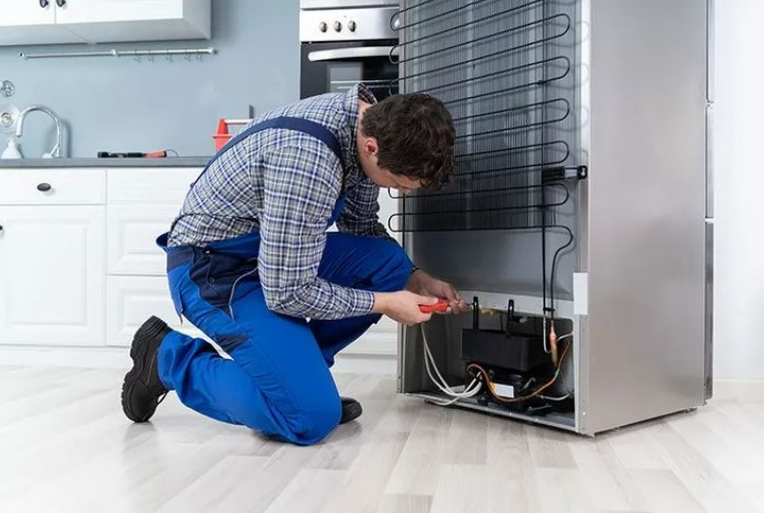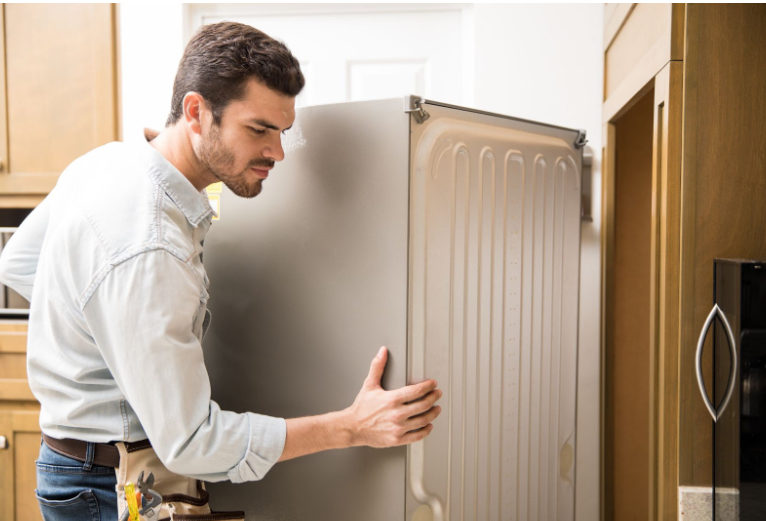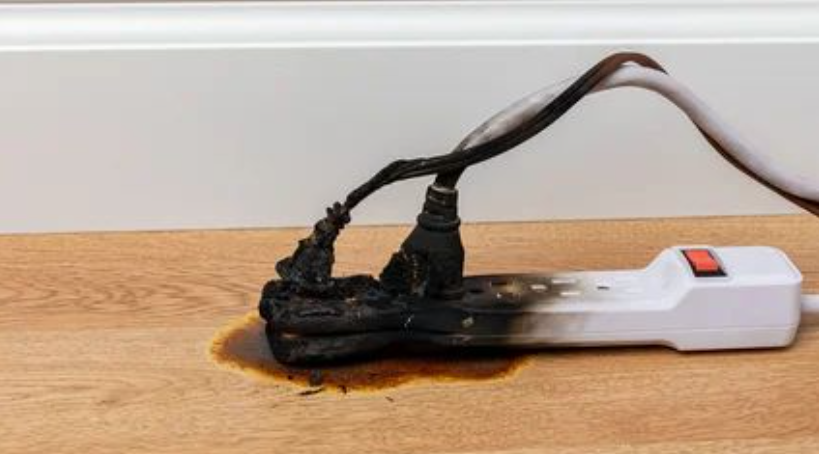Your fridge stops cooling right before a big family gathering. Your washing machine refuses to spin with a full load of laundry. Your oven won’t heat up on the night you planned a home-cooked meal.
Sound familiar? Appliances always seem to break down at the worst possible moment. When they do, you’re left wondering: Should I repair it or replace it?

The wrong decision can cost you more than you think, either in unnecessary repair bills or by replacing an appliance with years of life left.
In this guide, our experts at Appliance Repair Kelowna break down how to make the wisest choice for your home and wallet. Let’s get straight to it.
Consider the Age of Your Appliance
Appliances don’t last forever, but they’re also not disposable. The 50/50 rule is a good starting point: If an appliance is more than halfway through its expected lifespan and repairs cost more than half of a new one, replacement might be the more brilliant move.
Here’s a quick look at average lifespans:
- Refrigerator: 10 to 15 years
- Dishwasher: 8 to 12 years
- Washing Machine: 10 to 13 years
- Dryer: 10 to 15 years
- Oven/Stove: 13 to 20 years
- Microwave: 7 to 10 years
If your appliance is still relatively new, a repair might be worth it. But if it’s pushing the end of its lifespan, a replacement could save you from frequent breakdowns.
Check the Repair Cost
Let’s talk numbers. If a repair is less than 50% of the cost of a new appliance, fixing it usually makes sense. But there’s another factor: frequency of repairs.
One repair might seem affordable, but if your appliance has had multiple issues in the last year, you’re just postponing the inevitable. A one-time fix is acceptable. Repeated repairs? That’s money better spent on a replacement.
One pro tip is requesting a breakdown for the labor when getting a repair estimate. If a key component (like the compressor in a fridge or the motor in a washer) is failing, a replacement is often the better choice.
Understanding the Cost Factor
When deciding between repair and replacement, the first thing to consider is cost. Repairs can be significantly cheaper than buying a new appliance, but only if the fix is minor. If the repair costs more than 50% of the price of a new appliance, replacing it is often the better choice.
Another key consideration is long-term savings. Older appliances tend to be less energy-efficient, meaning a new model could lower your utility bills. If you’re constantly calling for repairs, those expenses add up. Instead of spending hundreds on recurring issues, upgrading to a new, more efficient model might be a smarter financial move.
Is It Just One Problem or a Series of Failures?
If your appliance is constantly acting up, it’s a sign that small issues are piling up and bigger ones may be on the way.

Red flags that indicate it’s time to replace:
- Your fridge isn’t cooling properly even after multiple repairs.
- Your washing machine keeps stopping mid-cycle.
- Your oven heats unevenly, making baking a guessing game.
If your appliance has a one-time issue that’s easy to fix, go ahead with the repair. But if multiple problems keep appearing back-to-back, you’re better off cutting your losses.
A single repair is normal. Recurring failures is a sign your appliance is on its last leg.
Severity of the Damage
A minor issue like a broken switch, clogged filter, or worn-out seal can be fixed quickly and affordably. On the other hand, if the problem involves the motor, compressor, or control board, the repair could be expensive and complicated.
Structural damage, such as a cracked washer drum or a warped oven door, is also a strong indicator that replacement is the better choice. If the damage compromises the core function of the appliance, you’re better off investing in a new one rather than attempting a costly fix.
Energy Efficiency and Environmental Impact
Older appliances consume more energy, leading to higher electricity bills. Modern appliances are designed with efficiency in mind, often using up to 40% less energy than older models. If your appliance is outdated and inefficient, upgrading could save you money in the long run while reducing your carbon footprint.
Recycling or donating your old appliance is another way to reduce waste. Many local programs offer disposal services to ensure your old machine is handled in an environmentally friendly manner. If sustainability is a priority, replacing an outdated, energy-draining appliance is a responsible choice.
Availability of Replacement Parts
Some repairs are simple until you realize the part you need has been discontinued or back-ordered for months. Manufacturers stop producing parts for older models after a particular time, making repairs more difficult and expensive.
If the part you need is hard to find or nearly as costly as a new unit, replacement is the better option. On the other hand, if the necessary parts are readily available and the repair is straightforward, fixing the appliance is a reasonable solution.
Warranty Coverage and Manufacturer Support
If your appliance is still under warranty, a repair is the obvious choice. Many manufacturers offer coverage for repairs, including parts and labor, which can save you hundreds of dollars.
However, if your warranty has expired and the cost of repair is high, investing in a new appliance with a fresh warranty might be the better decision. Some retailers even offer extended warranties on new purchases, providing peace of mind for future issues.
When Hiring Appliance Repair Kelowna Experts is the Smarter Choice?
If your appliance is relatively new and the repair is minor, fixing it makes financial sense. Issues like a faulty thermostat, clogged drainage system, or broken seal are inexpensive to repair and can extend the life of your appliance for years.
Hiring an appliance repair company is also a good option if the appliance has sentimental or aesthetic value. Built-in or custom appliances that match your kitchen design can be expensive to replace, making repair the preferred route.
When Replacement is the Best Decision?
If your appliance is outdated, constantly breaking down, or costing you a fortune in energy bills, replacing it is the more practical choice. High repair costs, discontinued parts, and safety concerns (like faulty wiring or gas leaks) are all strong indicators that it’s time for an upgrade.
Additionally, if your household needs have changed, such as a growing family requiring a larger refrigerator, replacing your appliance with one that better suits your lifestyle is a worthwhile investment.
Is Your Appliance Becoming a Hazard? Insights from Appliance Repair Kelowna Experts
Malfunctioning appliances can cause electrical fires, carbon monoxide leaks, or even gas explosions, making it critical to know when a repair just isn’t worth the risk. Here’s what to watch out for:

Burning Smell or Smoke
If you smell something burning while using your appliance, that’s an immediate red flag. This could be due to overheating wiring, melted insulation, or a failing motor. Ignoring it can lead to electrical fires.
Frequent Power Trips or Flickering Lights
If your appliance trips the circuit breaker frequently or causes flickering lights, it could be drawing more power than your home’s wiring can handle. This often means faulty wiring, a short circuit, or an internal electrical failure.
Gas Leaks (For Stoves, Ovens, and Gas Dryers)
A faint rotten egg smell near your stove, gas dryer, or water heater could mean a gas leak. Even a small leak can cause health problems, explosions, or fires if left unchecked.
Overheating or Sparks
If your microwave, dryer, or any other appliance feels unusually hot to the touch, it might be struggling with poor ventilation or an overworked motor. Sparks from an outlet or inside an appliance indicate electrical failure, which could lead to a fire.
Water Leaks Near Electrical Components
A leaking dishwasher, fridge, or washing machine can cause more than just water damage—it can create a serious shock hazard if the water reaches electrical wiring or circuits. This is especially dangerous for older appliances with exposed wiring or damaged insulation.
Loud Grinding, Buzzing, or Humming Noises
Appliances shouldn’t sound like they’re struggling to survive. Loud grinding, buzzing, or humming noises often mean that internal components are failing such as a motor burning out, a fan getting stuck, or loose wiring creating an electrical arc.
Final Thoughts
If your appliance is causing power issues, leaking gas, or showing signs of electrical failure, don’t wait for an accident to happen. Your safety is worth more than a temporary repair. When in doubt, call an expert to assess the risk and determine whether your appliance should be fixed or retired for good.
Appliance Repair Kelowna Experts offer expert advice and reliable repair services to help you make the right choice. Whether you need a quick fix or guidance on replacing your appliance, we’re here to assist you. Contact us today to get your appliances back in top shape.




